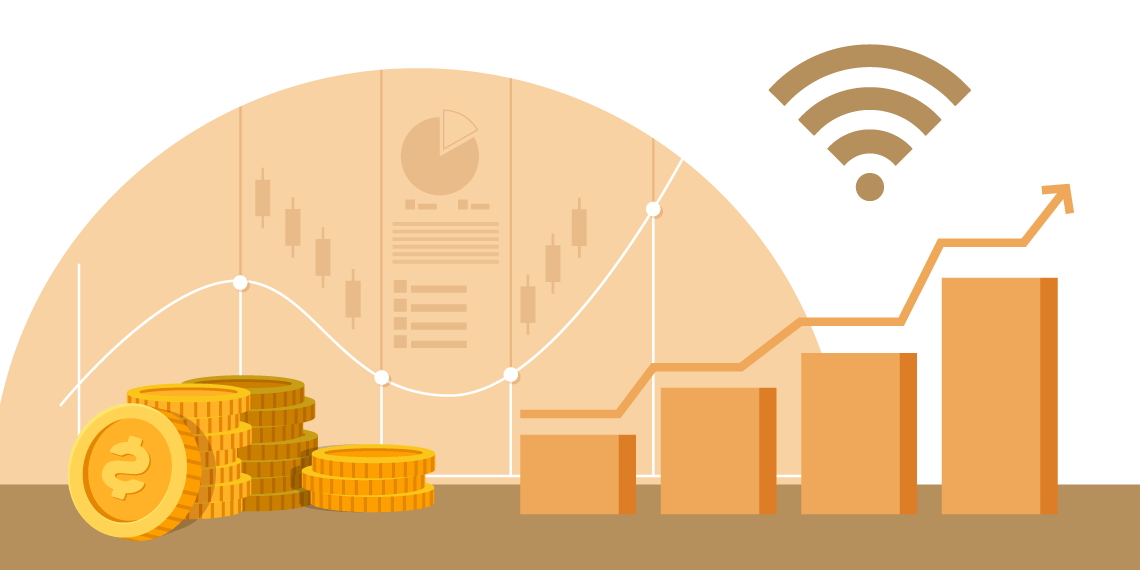Global Internet Connectivity Rates
For many countries, internet access is a given. In these countries, internet connectivity helps collaboration, lowers the cost of doing business, and facilitates innovation and knowledge sharing across every spectrum of life. From commerce and social interactions to politics, culture, education, and more, the internet is the engine that keeps people, value, and the economy moving. For example, in the US, major providers like Windstream are offering superfast speeds of up to 2GBs in most of the major cities.
Unfortunately, about 50% of people in poor developing nations do not have internet access, and this “digital gap” is only getting worse.
Why Internet Connectivity Matters
The internet is an inherently transformative tool that, when used correctly and with the support of the right policies and platforms, can have a significant impact on the performance of other sectors outside the information and communications technology (ICT) sector. Consider productivity increases thanks to shorter times to market; less labor-intensive methods of production, testing, innovation, and sharing; improved quality of life; seamless access to information, entertainment, job opportunities, and training; the accelerated distribution of ideas and information; and easier collaboration in the development of new products, processes, and business models.
All of these internet-driven advancements have a direct impact on a country’s GDP and competitiveness and the quality of life of a country’s residents. As such, internet connectivity – specifically, the high-speed broadband connectivity needed to run today’s data-intensive apps – can boost economic output by making it easier to acquire knowledge and technical skills while improving the efficiency and productivity of enterprises. Broadband connectivity can also increase business competitiveness by attracting knowledge-based businesses and helps create new, innovative technologies, services, applications, and related offerings.
Internet Connectivity and Economic Progress
According to the Pew Research Center, there is a strong correlation between a country’s wealth in GDP terms and internet access. Poorer nations have considerably lower internet rates as compared to richer developing countries and wealthy nations in Europe, North America, East Asia, and the Pacific.
While there has been a significant increase in the number of people who can access the internet in many of the world’s most rapidly growing markets, this access skews toward younger and more educated individuals, as well as men. There are even statistically significant age and gender gaps when it comes to internet usage in many advanced economies, even though connectivity across the board is much better than it is in many developing nations.
Controlling for age, gender, and other relevant factors, many studies have found that once people are online, they tend to stay online. They continue to enjoy the benefits of connectivity and use the internet in different ways to improve their productivity, enjoy better products and services, and reduce the cost and/or effort of doing the work they need to do.
Poor Internet Access Drives Inequality
COVID-19 and the “Great Lockdown” helped spur a mass migration from manual/analog methods to digital ways of doing things. It also highlighted the importance of internet access when it comes to socioeconomic inclusion.
For example, without high-speed internet at home, children could not join online classes when schools were closed because of the pandemic. Without connectivity solutions in place, access to telemedicine, social support programs, financial services, and investment opportunities can all be restricted or even nonexistent.
Within countries, the digital divide tends to be most apparent between high and low earners; rural and urban residents; men and women; and between younger and older users. This has a direct impact on labor force participation, wages, and access to the services mentioned above. Between countries, poor internet access can reduce productivity within otherwise similar nations, meaning one country with a certain set of resources can leapfrog its counterparts simply by providing internet access to its people.
As such, governments and decision-makers should strive to create a digital-friendly environment in which businesses can finance and accelerate the deployment of the infrastructure needed to provide internet access to those who need it most.
Getting Internet Connectivity Right
What, then is the opportunity?
The World Bank reports that almost three-quarters of Africa’s 1.3 billion population lack broadband internet access. Furthermore, access of at least 60% is required to enjoy the benefits of broadband connectivity. The internet economy in Africa is expected to be worth $700 billion by 2050, so the race to connect Africa represents hundreds of billions of dollars in untapped economic potential.
Companies such as 3air.io are working to put the digital infrastructure in place that can help emerging economies overcome the digital divide and help those who currently lack internet access to get online. Using a cost-effective mesh network of nodes and devices that can run the applications that make the internet the value-generating resource that it is, 3air is helping to close the digital skills and technology literacy gaps that poorer, disconnected economies face.
With technology that works even in densely populated urban areas – technology that is not impeded by physical structures or the geographic profile of an area – 3air can roll out fast, reliable, and cost-effective internet, telephony, and digital TV services to poor, disconnected markets in Africa. The project has already attracted widespread support, and thanks to the innovative use of connectivity NFTs and participation incentives for end users, 3air is rapidly expanding to new markets, bringing thousands of new users online every day.
The Final Word
The winners of tomorrow will be those who find innovative solutions to solve today’s issues. By bringing the next generation of talent and households online, companies such as 3air are ensuring that a creative and economic boom in Africa becomes not a question of ‘if,’ but of ‘when.’





